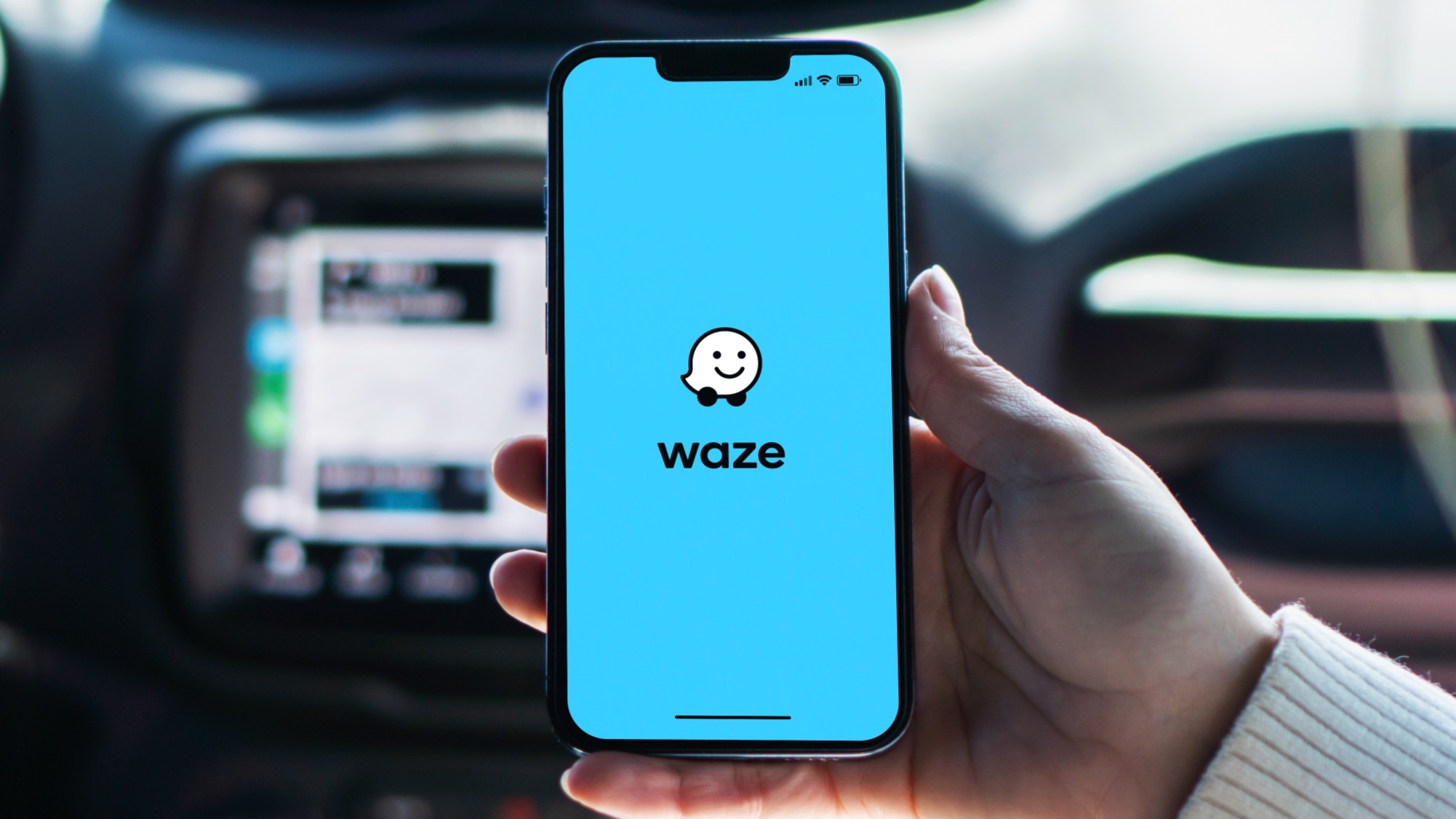Blue light isn't as bad for your sleep as you think, new study says
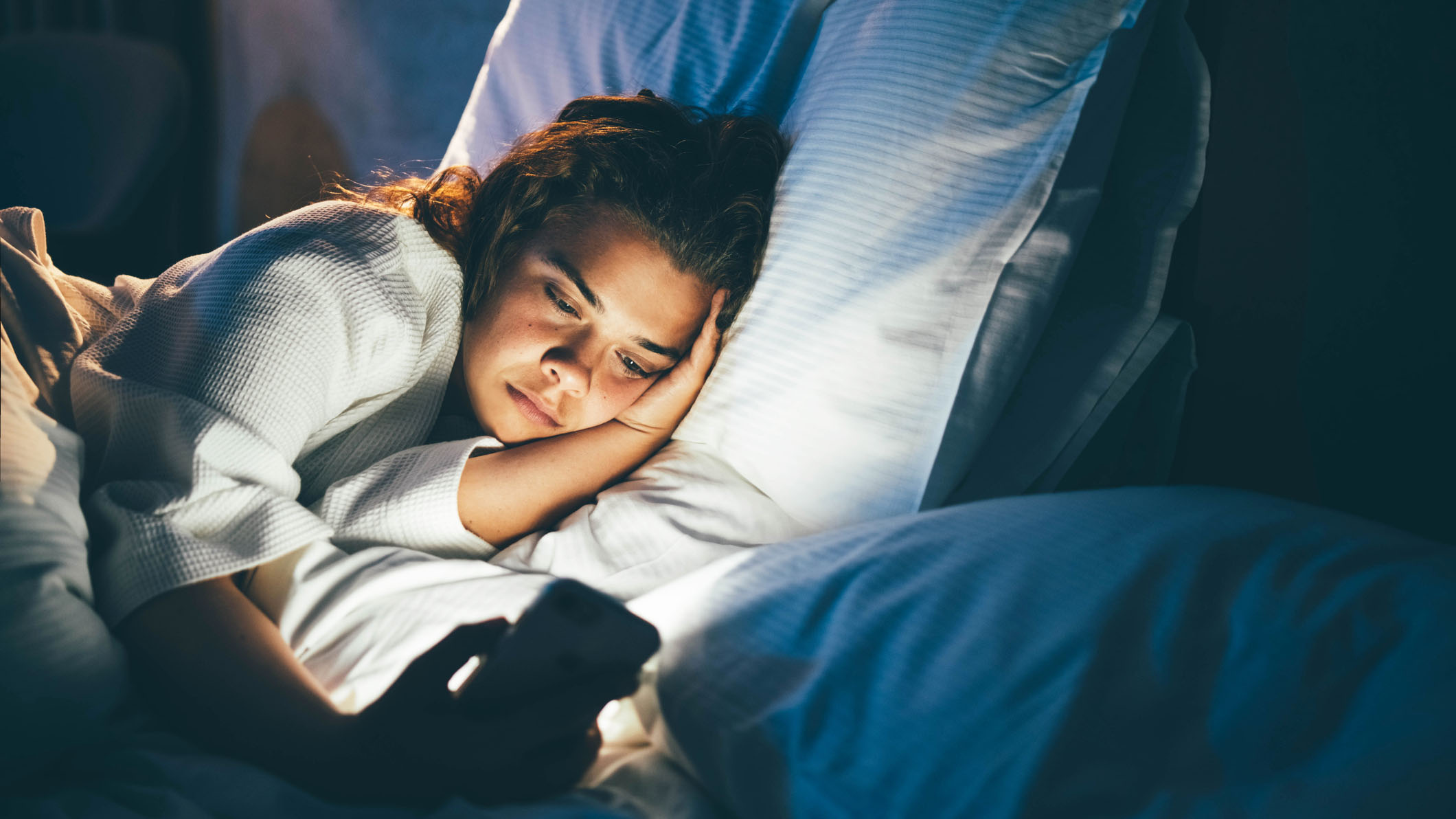
It seems like common sense that the glaring blue light of your smartphone can prevent you from falling asleep. Light is what we need to get us going in the morning, so of course a bright phone screen is the reason for your restless nights.
However, recent research from analysis site The Conversation indicates that your pre-bed smartphone habit might not be the major sleep disruptor you think it is. The study suggests blue light might delay your sleep time — but probably for no more than three minutes.
Good sleep hygiene still doesn't involve half an hour (or more) of doom scrolling in your pajamas, but you don't need to lock your phone in a safe alongside the caffeine. In this guide, we'll explore what blue light is and why your smartphone might not be keeping you awake. Plus, some tips on how to better integrate your phone into you bedtime routine.
If blue light isn't behind your restless nights, it might be your bed that's stopping your sleep. Our guide to the best mattresses of 2024 can help you find the perfect sleep setup for your needs, and with the Labor Day mattress sales getting started, now is a great time to save. But first, let's explore how much of a culprit
What is blue light?
Light exposure is closely linked to our sleep cycle. Too much light can stop us from sleeping, as it suppresses the production of the sleep-hormone melatonin. On the flip side, bright sunshine in the morning can help us wake up feeling refreshed.
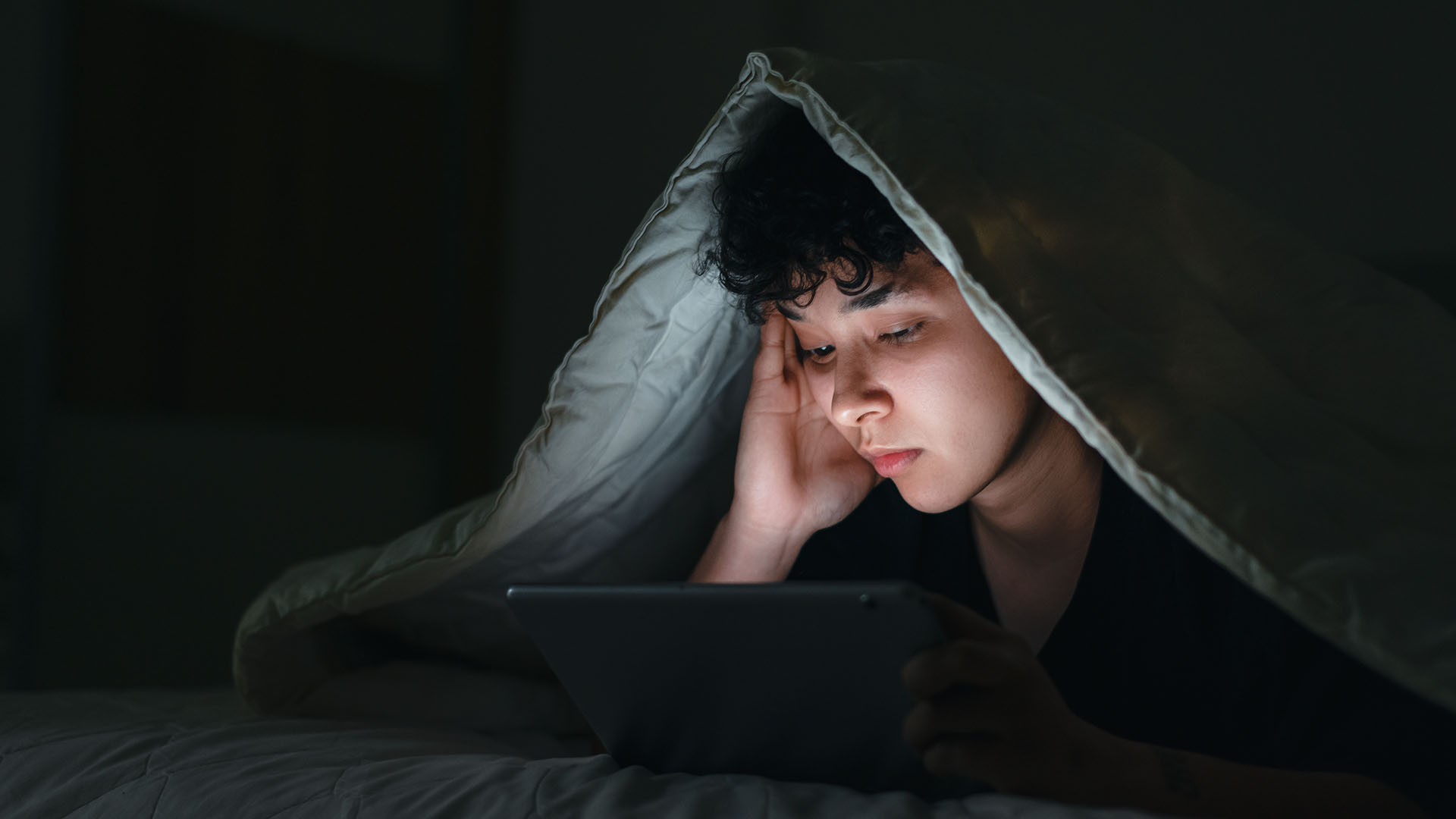
Where does blue light fit into this? The most common source of blue light is the sun, and it's the part of the visible light spectrum with the highest energy and the shortest wavelength. When blue light hits the sensors in the eyes, it's recognized it as a signal to be alert, awake, and to hold back the melatonin.
Other sources of blue light include LED screens and smartphones. The light sensors in our eyes can't tell the difference between artificial blue light and a bright, shining sun, so perceives this as another signal to wake up. No wonder we assume smartphones are bad at bedtime.
Get instant access to breaking news, the hottest reviews, great deals and helpful tips.
So does blue light actually affect your sleep?
Smartphones emit blue light, blue light suppresses melatonin, and we struggle to sleep without melatonin — at least, that's the widely help order of events. However, a recent scientific review is challenging this perception.
The review looked at 78 independent studies that feature a total of 118,370 participants to see what the data actually says about technology and our sleep. And the results were...surprising.
The review discovered that across 11 different experimental studies, using blue light before bed only increased the time it took to fall asleep by an average of 2.7 minutes. That's not an insignificant time period, but it does imply that blue light is not responsible for the 30 minutes you spend tossing and turning.
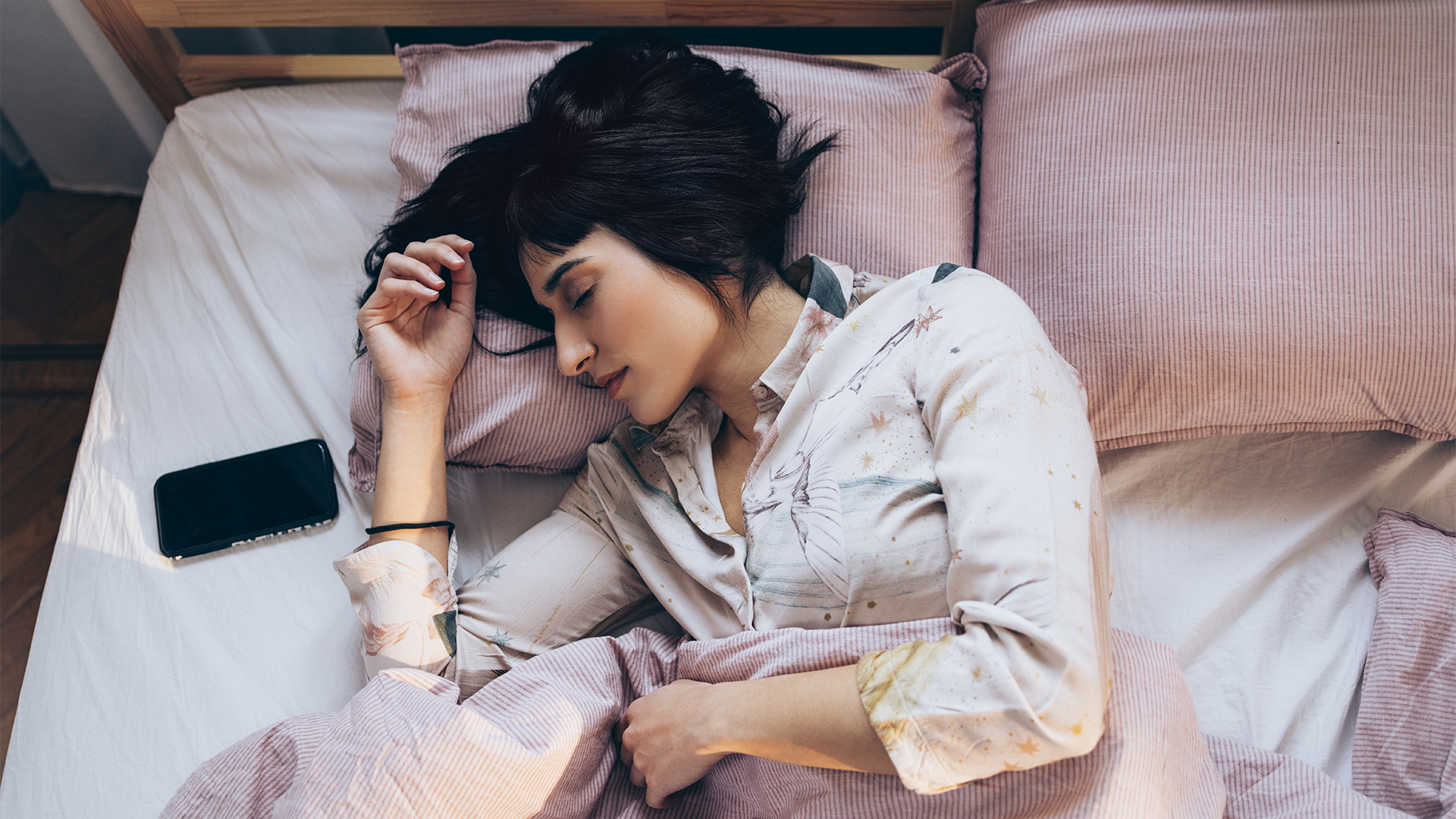
While the review did note some studies observed a link between screen usage and a decrease in melatonin levels, that didn't necessarily correlate to lying awake. This might be due to the relative brightness of a smartphone.
In direct sunlight, you can be exposed to anything from 32,000 to 100,000 lux (a measurement of illuminance). Your device, on the other hand, only emits around 100 lux — and that's at full brightness.
This doesn't mean you can go ahead and take your phone to bed. But it does mean a blue light blocker might not be a necessary feature of your sleep hygiene. The review also theorizes that instead of blaming blue light we should look for other reasons why our phones might be keeping us awake.
How to use your phone in bed without disrupting your sleep
Blue light from your smartphone might not be the cause of your tossing and turning, but that doesn't mean your phone isn't keeping you up. It probably doesn't come as a surprise that here at Tom's Guide we're habitual smartphone users, so follow our tips for using your phone better before bed.
1. Turn down the brightness
Although there's still research needed to determine if smartphone blue light really can disrupt sleep, it's still a good idea to lower your screen brightness before bed. At the very least, it will help you steer clear of eye strain.
2. Avoid anything too stimulating
There's nothing like social media for getting the blood boiling, and your pre-bed gossip with friends can leave your mind racing when you're meant to be winding down. And let's not mention what a quick peek at your emails can do to your stress levels...
If you are going to use your phone before bed (because let's be honest, most of us are) opt for relaxing activities instead. Enjoy some calming videos — YouTube has some excellent sleep meditations — or get stuck into that book you downloaded.
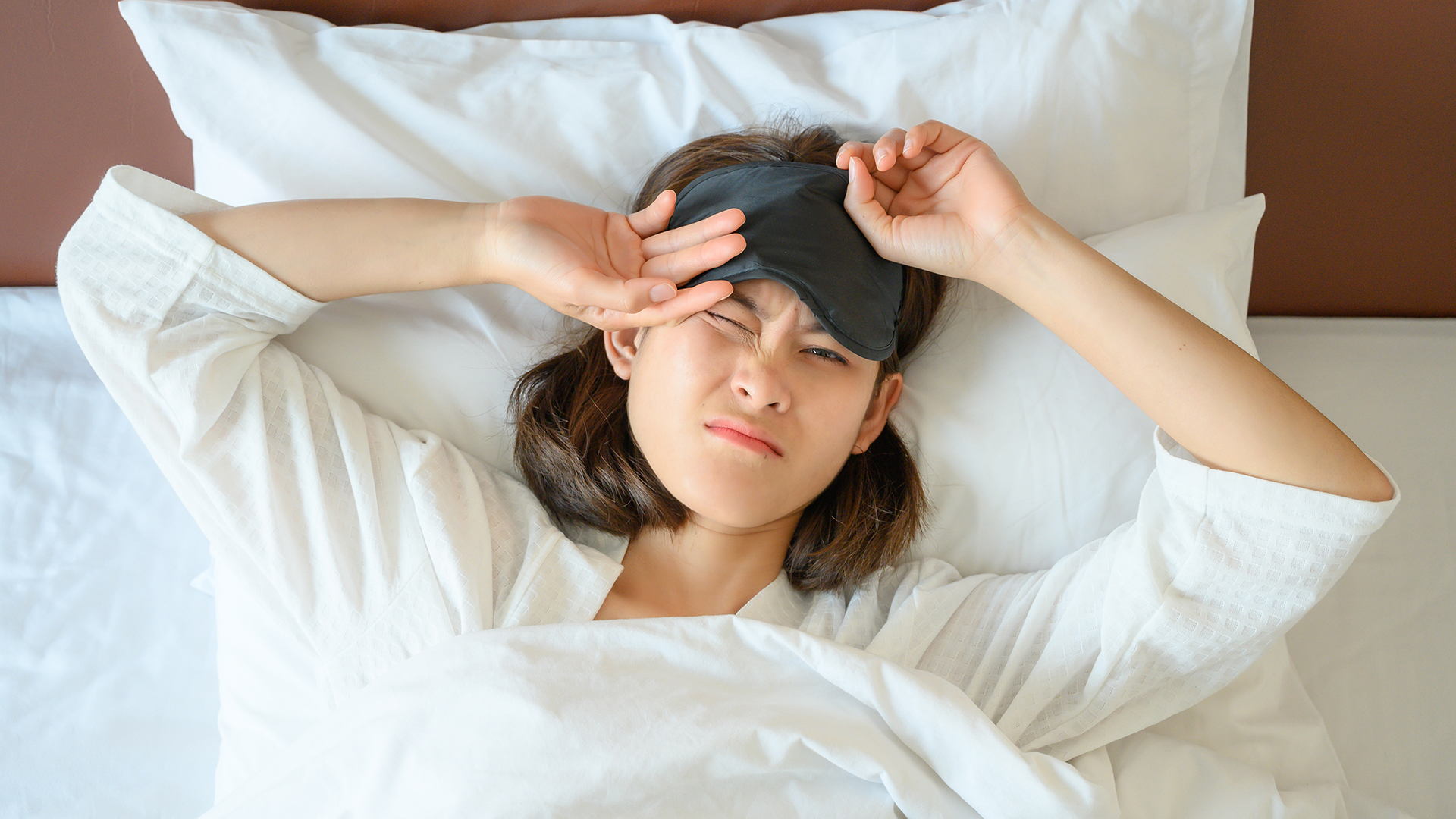
3. Set screen time limits
Missed your bedtime because you couldn't stop scrolling? You might wake up blaming the blue light for your grogginess, but your bad phone habits are probably the reason you're losing sleep.
A screen time limit blocks you from accessing apps and features past a certain point, reminding you that yes, it really is time to put the phone down and go to bed. Adding limits can help you stay aware of your scrolling habits, encouraging you to pay attention to your bedtime.
4. Turn off your notifications
A sudden 'ding' in the night jolts you out of slumber, and even though you know you should close your eyes and go back to sleep, it's hard to resist the allure of that unread message. When late night conversations are keeping you up, the best thing to do is turn your phone off. But if that feels like a step too far, put it on silent instead.
5. Don't reach for your phone at night
Waking up in the middle of the night and reaching for your phone can turn a minor disruption into a night of lost sleep. The best way to fight temptation is to remove the phone from the bedroom entirely, but if that's not possible, try keeping it out of reach instead. If you have to get out of your cozy bed to grab your phone, you're much more likely to give up, roll over, and (hopefully) drift off back to sleep.

Ruth is an experienced Senior Staff writer at Tom’s Guide, covering all things sleep and mattresses. She writes to help people sleep better, from how-tos to the latest deals to mattress reviews, and has interviewed an array of experts who share her passion. She is also our specialist on memory foam — she’s flown around the world to see memory foam being made — and leads our hotel mattress content. She has a deep interest in the link between sleep and health, and has tried enough mattresses, from Helix to Nectar to Simba, to know the right bed really can make a difference to your wellbeing. Before joining the team at Tom’s Guide, Ruth worked as a sleep and mattress writer for our sister website, TechRadar.
